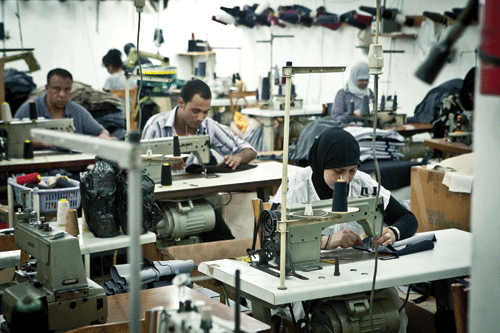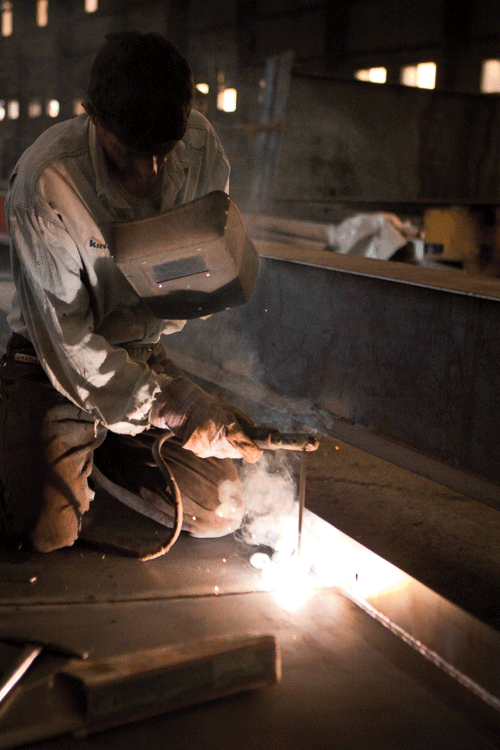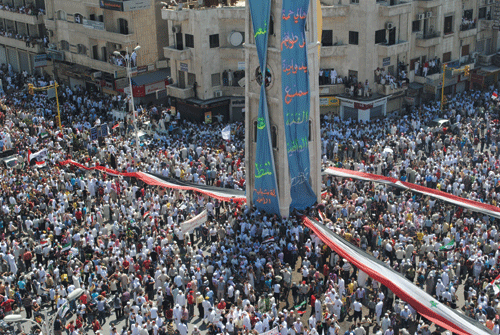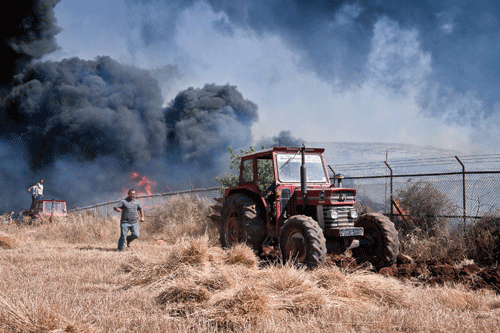When Ali Ismael, co-owner of Tricot Starlet Co., saw the wreckage of his clothing factory in Beirut’s southern suburbs, bombed just five days before the 33-day war ended, the shock literally sent him to the hospital with high blood pressure. “Everything I worked for my entire life just went to waste,” he said. “I did not inherit anything from my parents — neither my partner nor I. It was our entire life’s work and it was hard looking at it burn in front of my eyes.”
Little remained of the factory, located in a hard-hit area on Al Kassis Street next to what Ismael described as the “Hezbollah kitchen”. Initially, he considered this the final blow for the company; already, the textile industry was suffering in Lebanon, with cheaper competition from Asia and, contends Ismael, “mafias that can get in a whole container at the port for$15,000 without paying any customs.”
But his partner, Hussein Chehab, was unequivocal about the company reopening. “He was very brave and he directly decided to reopen again,” said Ali. “I wasn’t as brave but I supported him and his decisions.”
One of Tricot Starlet’s saving graces was a relatively immediate influx of money to help mitigate the $2 million of direct damage. First, he sold his two remaining warehouses for $415,000, which he used to buy a new facility in Hadath. Then his siblings and an American client with whom he used to work provided an undisclosed amount, while a Turkish supplier offered the company a generous $75,000 worth of credit. And lastly, Hezbollah provided $100,000 as compensation — not enough for a full restart — but sufficient to pay employees during the two months in which Tricot Starlet was out of commission before a new factory was opened in Hadath.
Left guessing
Notably absent in Ismael’s recounting of funding is the role of the Lebanese government. The United Nations Industrial Development Organization did provide $25,000 for four sewing machines, but Ismael has been unable to secure a central bank loan. Unlike many other factory owners Executive spoke with who were unwilling to mortgage their assets in order to receive a loan, Ismael is willing but has been left in limbo.
“The central bank sent some experts and auditors to appraise the damage,” he said. “I paid $12,000 to complete such procedures, but until now did not receive anything.”
Working through Bank of Beirut and Arab Countries (BBAC),Ismael said, the application was submitted to Banque du Liban, Lebanon’s central bank, and approved, but “has stopped there.”
Four years since the loan mechanism was created, and nearly three since the application deadline, Ismael no longer expects any assistance and is not sure of the problem. The central bank circular stipulates that a recipient must need the loan in order to continue operations, which for Ismael may not be the case. Still, nearly $2 million in damage is a hefty sum for a firm the size of his, with just 40 employees before the war, to have to pay.
Nonetheless, the business continues with apparent efficiency. Men and women crouch over sewing machines, guiding the fabric as the needle chugs along the seams. Ismael designs the clothes, for women and for men, but is aware that in Lebanon the viability of plants like his is waning. “The cost of the thread is increasing and the sales prices are declining,” he said. “There is no possibility to grow in this industry; it is fading.”









